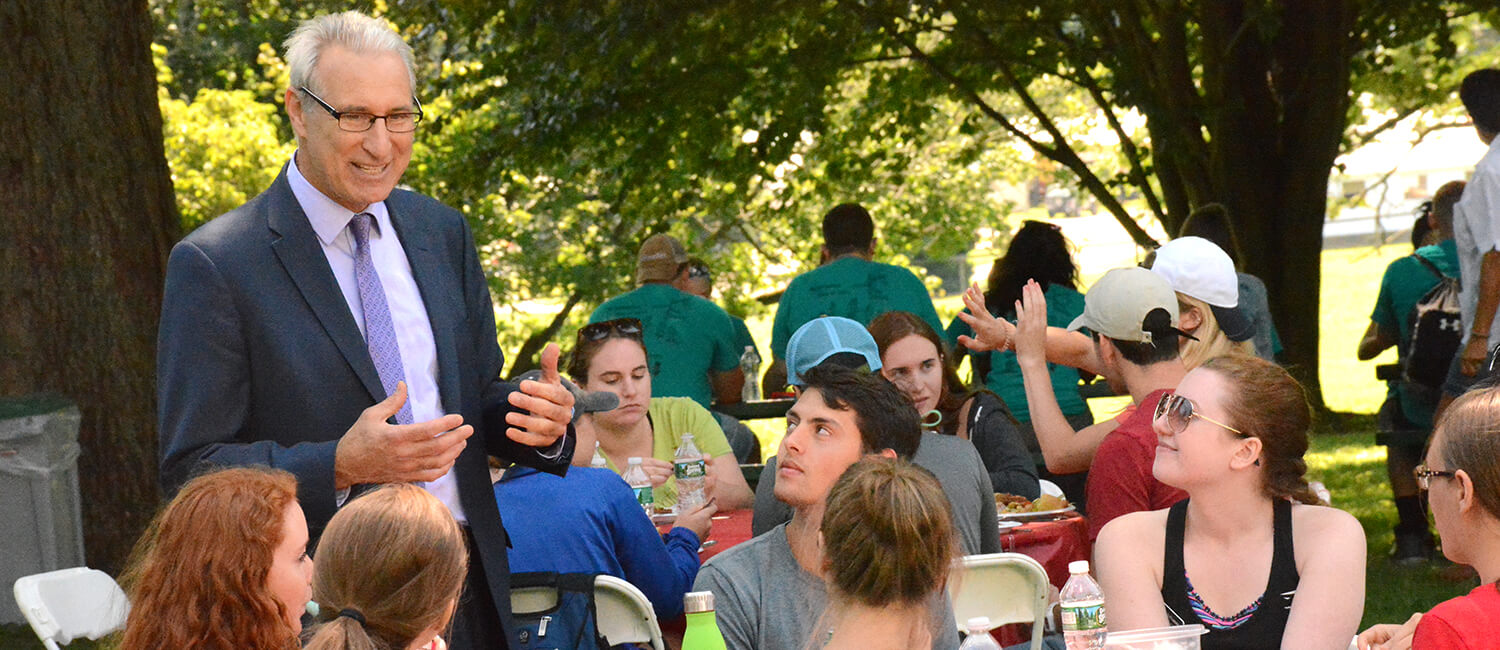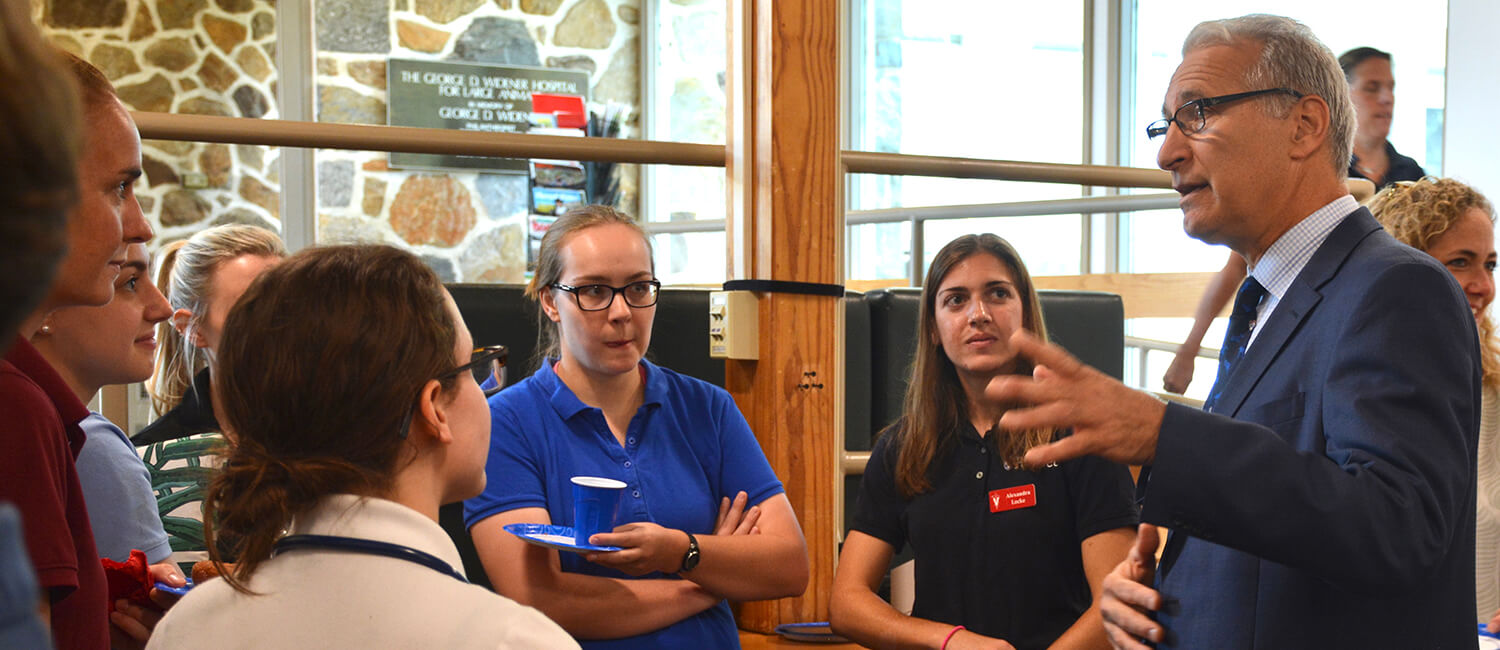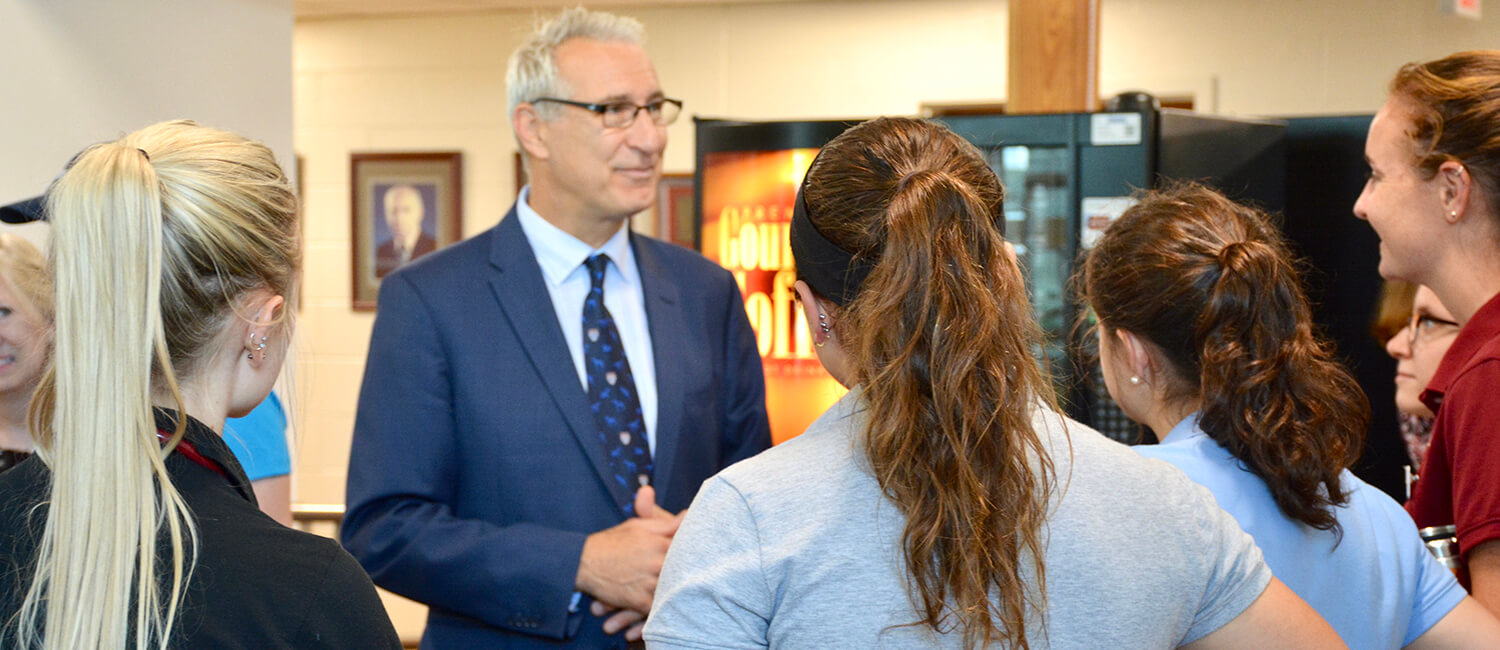 Dean Andrew Hoffman meets with students from the class of 2022 during their orientation.
Dean Andrew Hoffman meets with students from the class of 2022 during their orientation.
Bellwether sat down with Hoffman on his first day — a typically hot and humid late summer one in Philadelphia — to talk about becoming dean, the future of veterinary medicine, career highs, and more.
You grew up in Wilmington, Delaware, and went to the University of Delaware for undergrad so this is kind of a “homecoming” to the area — how does it feel?
This region has changed a lot since I was a child. It’s not very familiar to me anymore — although the summer climate is! Growing up, my family didn’t make our way to Philadelphia very often, except to go to the Philadelphia Museum of Art and the Zoo, plus occasional Phillies games. So, I’m excited to get to know the city with Julie and our kids.
Coming to Penn Vet closes a circle for me. My father, a research scientist at DuPont, worked with Penn Vet professor Dr. Dick Bartholomew’s wife Pat. For decades Dr. Bartholomew was a beloved food animal ambulatory professor at New Bolton Center.
As a kid, I had some curiosity about veterinary medicine, but it was the typical 13-year-old reading James Herriot or Dr. Dolittle kind of curiosity. To encourage a deeper interest, my father sent me out to ride with Dick at New Bolton Center on weekends or holidays. Here I was this suburban kid seeing his first calving and picking up feed and smelling the stalls; I loved it. I saw a career path there. Although in high school, I thought I’d be a musician – I was a jazz trumpet player — I did end up going the biology route in college.
While it’s too soon to reveal your plan for Penn Vet, generally speaking, where do you see veterinary medicine in 10 or 20 years?
Veterinarians will continue to provide medical care to companion and food animals. The need for private practice providers will never go away, nor should it. Beyond that, I see our profession expanding much more into areas that have traditionally been siloed.
I talk a bit about this in my Dean’s Message: As a field, we’ll be much more integrated with human medicine, dentistry, social policy, environmental science, engineering, and other disciplines. The One Health movement is the foundation for this work, and a decade or two from now we’ll see amazing innovation around this concept. I do believe we are primed for this radical transformation.
For students, this will mean new, tailored, and unique career pathways. For researchers and educators, there will be more impactful collaboration. And practitioners will have opportunities to broaden their reach from animal to human health.
 Dean Hoffman attends a meet-and-greet at New Bolton Center.
Dean Hoffman attends a meet-and-greet at New Bolton Center.
You’re interested in the role veterinarians can play in the health of local communities, particularly in underserved urban and rural areas. Tell us more.
One of the things I find most incredible about our profession is that we can serve as access points to health care for people. In rural or urban America, animals, whether they’re for companionship or agriculture, need care. As providers of this care, veterinarians meet people who may not, for any number of reasons, seek medical care for themselves.
When I was in practice, I saw the risks my longtime farmer clients took while farming — not only environmentally, but also physically. And, although they cared for their animals, many farmers didn’t seek physicians for their own health.
As animal doctors, veterinarians get to know owners, which makes us witnesses to how different environments may affect the health of individuals and the communities in which they live. I believe veterinarians in the future will play a larger role in identifying community health needs and improving access and outcomes, for example, in rural and urban areas that are underserved.
What are you most proud of in your pre-Penn Vet career?
Mentoring or training people who have gone on to do extraordinary things. It’s very satisfying as a researcher and teacher to know I’ve stimulated people to ask questions that have led them to interesting, inventive, and successful careers.
My career evolved over time, and I’m also very proud that every six or seven years I would do something innovative that had conceptual outcomes. One example is the work my Tufts lab did with a group at Brigham and Women’s Hospital in Boston. We spent more than a decade developing a method to treat human emphysema. I ran an interdisciplinary team of veterinary and human physicians – the latter were present in our hospital and laboratories every day, which was incredibly exciting and rewarding. I look forward to more partnerships like this at Penn Vet.
